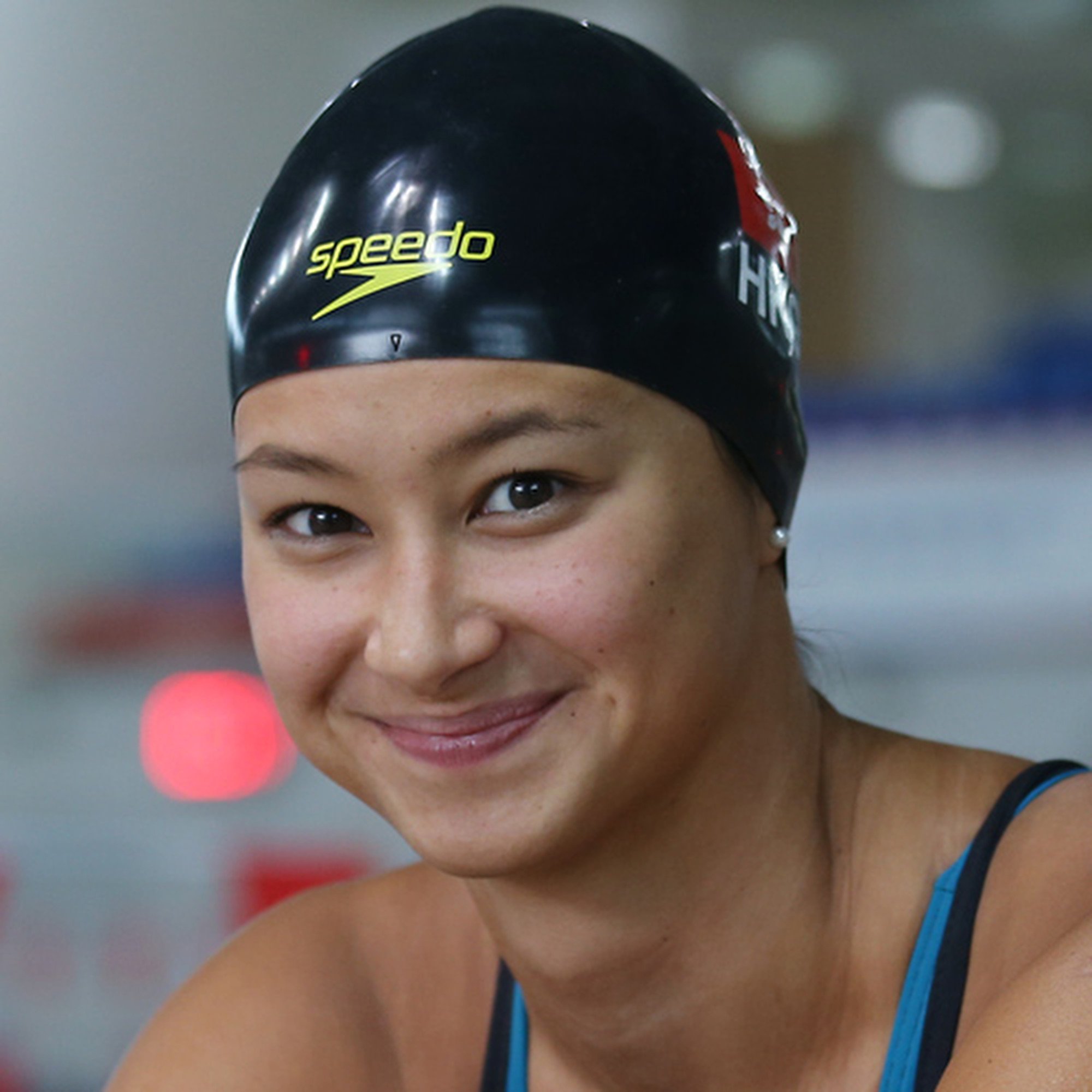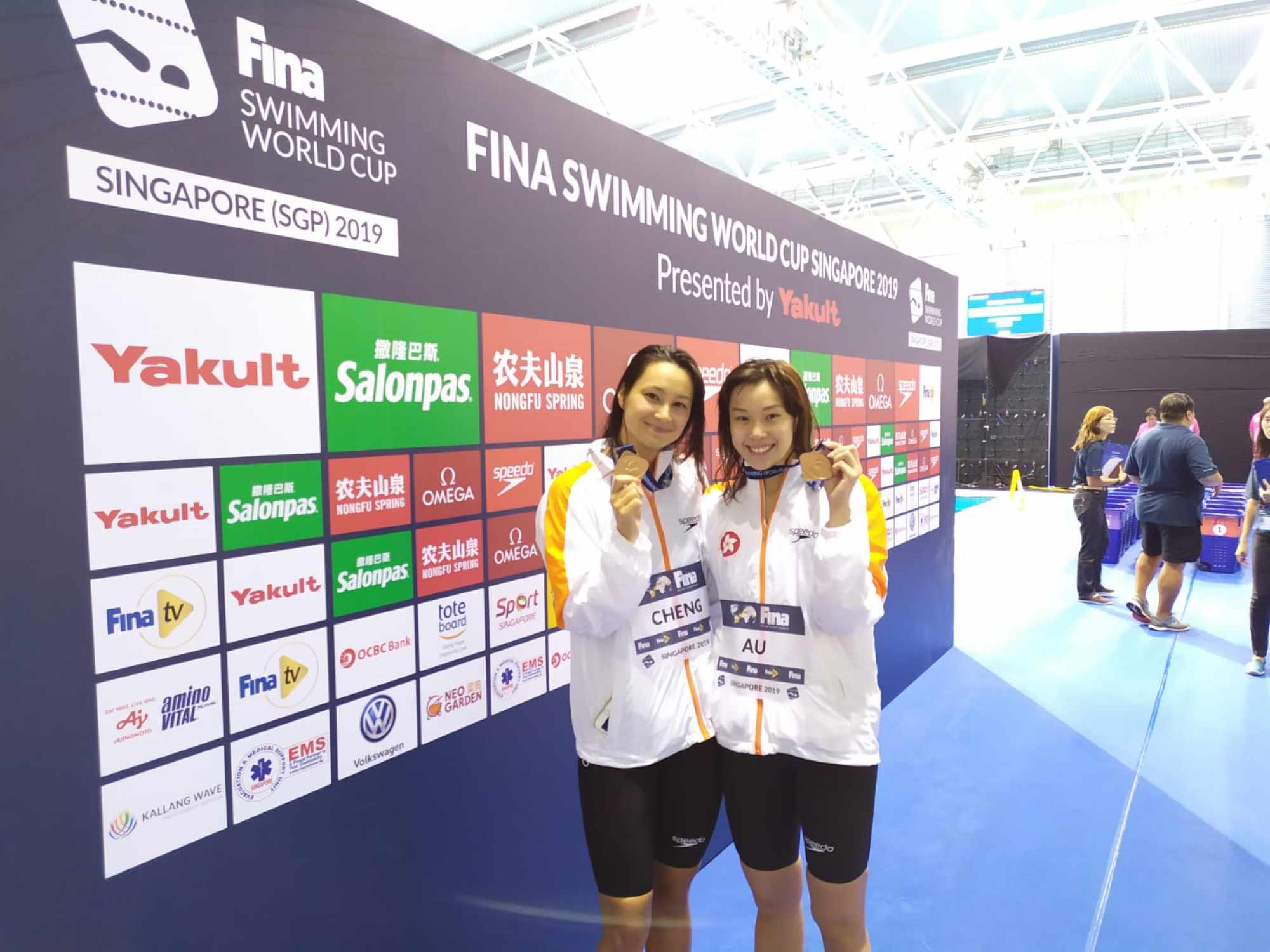
Paris Olympics: Hong Kong swimmer Camille Cheng tells of mental toll at top, says success brings own struggles
- Cheng says becoming an Olympian created its own pressure of always having to perform at that level
- The 30-year-old could compete at her third Games in Paris this summer, but warned of dangers young athletes face
Hong Kong swimmer Camille Cheng Lily-mei has opened up about the physical and mental toll competing at the Olympics had on her and how she believes such exertion leads many young stars to burnout.
The 30-year-old made her debut at the world’s biggest multi-sport event in Rio de Janeiro in 2016, and said being an Olympian changed the expectations she had of herself.
A seven-time Asian Games medal winner, Cheng could represent her city in the 4x100 metres freestyle relay and 4x100m medley relay at the Paris Olympics this summer.
“Once I came back from the [2016] Olympics, all of a sudden I had this like stamp, ‘you’re an Olympian’, but I felt like I didn’t really change. It’s just that … now I have this title,” Cheng said.
“I felt too like now that I’m an Olympian, I had to perform at this Olympian status all the time. That was the biggest thing that was hard for me because it’s not sustainable to be performing at your highest every single day.”

Cheng was speaking at a panel discussion on Thursday about the unrealistic expectations professionals in the sports and fitness industries face in terms of body images and results on the field.
Eight years on from her Olympics debut, Cheng said she still remembered the mental and physical exhaustion that prompted her to take several months off after competing in Brazil, where she swam in the women’s 50m freestyle, 100m freestyle, 200m freestyle and the 4x100m medley relay.
“I actually avoided competing [after the 2016 Olympics], I was like, I don’t want to compete because it doesn’t make me feel good,” she said. “And I felt very self-conscious that I didn’t look good.”
Cheng said being able to talk about her mental well-being enabled her to continue to perform at the top level.
“I think a big reason that I feel like I can go to my third Olympics is because I found a way to make it sustainable and I think that’s still lacking in the athletic culture in Hong Kong,” she said.
“I share things that work for me, I journal a lot, I see my therapist, a sports therapist and a non-sports therapist, and I have a really close group of friends.”

But Cheng said some young athletes burn out and leave their chosen sports because they either do not know how to communicate issues surrounding their mental well-being or because there is a lack of resources to help them.
“It’s not a burnout because they don’t love the sport or they don’t want to continue, it’s because we’re just being pushed physically and mentally,” she said.
Cheng has become a mental health advocate in recent years. Along with fellow pro swimmers Stephanie Au Hoi-shun and Jamie Yeung Zhen-mei, she is one of the founding members of Mind The Waves.
The organisation aims to encourage Hong Kong’s youth to open up and discuss issues surrounding mental well-being through community events, online content and mentoring.
In January, a report from the Department of Health found that 1.6 per cent of Hong Kong secondary pupils tried to take their own lives.
The figure for those who had considered suicide was almost 50 per cent up on the rate for 2018-19, shining a light on the state of the mental well-being of Hong Kong’s youth.
Last month, Hong Kong Olympian Oscar Coggins spoke of the toll juggling elite triathlon and life had on him.
Coggins, who finished 33rd in the Tokyo Olympics, the best Games result for a Hong Kong triathlete, said he sank into “a black hole of disappointment and frustration” following last September’s Asian Games.
In the build-up to the event, the 24-year-old was training in Hong Kong while his family were in the UK and their interactions were limited to online Zoom calls because of the city’s stringent Covid-19 restrictions.
“I was left trying to work out why [I made those sacrifices], because what did I get out of it?” Coggins said.
“That was part of a huge cloud of emotions … the whole thing was just such a crushing experience. The previous 18 months felt like a Sisyphean struggle: every time I started to climb, I fell back down again.”

